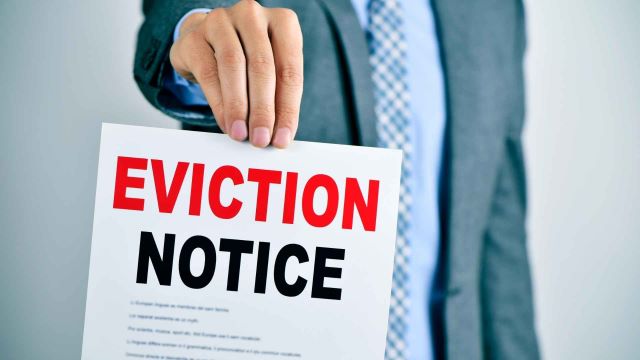
Most landlords require tenants to sign a lease agreement before moving into their rental properties. And this is for good reason. For one, you are able to communicate to the tenant your expectations.
But most importantly, you are able to define the period of the lease agreement. That is, the specific start and end date of the lease. This helps both parties know when the term begins and ends, to reduce potential misunderstandings.
That said, even with a clear start and end date, a tenant may choose to overstay their lease which could lead to a holdover tenant situation. If that were to happen to you, what would be your options?
In today’s article, you’ll learn everything about holdover tenants so that you can properly understand your rights and responsibilities under the law.
What Is A Holdover Tenant?
A tenant that stays on the rented premises after their lease has ended is known as a holdover renter. The entitlements of holdout tenants are not defined by the law. However, a lingering tenant usually has the right to keep renting the property until the landlord decides to stop doing so.

Another term for a holdover renter is a "tenant at sufferance." This indicates that the tenant is living at the landlord's discretion even though they are not occupying the property unlawfully.
What Options Do Landlords Have When It Comes to Holdover Tenants?
As a landlord with a holdover tenant, you’ll have the following options to consider.
Option #1: Continue Renting to the Tenant.
You can draft a new lease agreement and have the tenant sign it to continue living on the property. You can choose either to go for a short-term lease or a long-term lease depending on your circumstances.
But generally, if you had a smooth landlording experience with the tenant, then consider going for a long-term agreement. However, if the contrary is true, then consider a short-term lease, such as a month-to-month lease.
Option #2: Consider Evicting the Tenant From Your Property
If the tenant is giving you a hard time, then consider evicting them from the property. But first and foremost, stop taking further rent payments. Otherwise, continuing to do so would give the tenant the legitimacy to continue living on the property.
Next, begin the formal eviction process against the tenant. The following is a basic overview of what the process would be like.
- Notice: Specifically, serve the tenant with an Unconditional 7-Day Notice to Quit. This will give the tenant 7 days to vacate the premises. If they don’t, you can proceed as follows.

- Lawsuit: You have the option to file an eviction action with the county court in the area where the property is located if the tenant disregards the notice.
- Summons and Complaint: After filing an eviction lawsuit, the court clerk will arrange for the tenant to be served with the Summons and Complaint. The tenant will have a specific period to respond. If they do respond, a hearing will be scheduled.
- Court Hearing: During the hearing, both parties present their arguments to the judge. The judge will then decide whether to grant the eviction or not.
- Eviction: If the judgment is in your favor, the court will issue you with a Writ of Possession. This legal document gives the sheriff the right to forcefully evict a tenant from their rental premises.
As a landlord, you must follow the proper eviction procedures when removing a tenant. Besides following the proper court procedure, you must also not engage in a discriminatory or retaliatory eviction exercise.
Should you need expert help in removing a difficult tenant, consider seeking help from a qualified property manager like the team at NFI Property Management.
How to Avoid Holdover Tenants?
Avoiding holdover tenants in the first place is key to a smooth landlording experience. The following are some tips to get you started.
Holdover Tenants Clause
Include a clause in the lease agreement that specifically addresses what will happen if a tenant stays past their lease period. Specifically, state in the clause that a tenant who overstays their lease risks an immediate eviction.

Also, be categorical that you won't accept any further rent payments after the lease has expired.
If your local law allows for financial penalties, be sure to include them in the clause too.
Notify the Tenant of the Lease’s Expiration
Let the tenant know that their lease is almost nearing its end well in advance. Ideally, do this at least 60 days earlier. And while the law doesn’t require this, it remains an effective way to avoid potential holdover situations.
Besides reminding the tenant of the nearing end date, also let them know of the consequences of holding over. This is especially true if you have no intention of renewing the tenant’s lease for another term.
Conclusion
Drafting a concise yet detailed lease is key to a smooth landlording experience. Among other things, it’ll help you avoid dealing with the potential issues of having a holdover tenant.
If you need expert help in drafting a lease agreement, or need help with the overall management of your property, then look no further than NFI Property Management Solutions. We work hard to help landlords achieve their investment goals and we could work hard for you too. Get in touch to learn more!